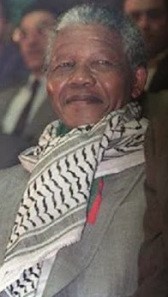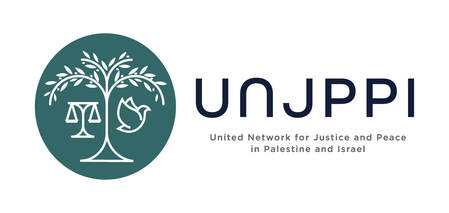Mandela Had “A Unique Moral Authority”
 Algeria, May, 1990.
Algeria, May, 1990.
08 Dec 13 by James M. Wall
http://wallwritings.me/2013/12/08/mandela-had-a-unique-moral-authority/
Nelson Mandela died at his Johannesburg home on December 5. The man who led South Africa out of the bondage of national apartheid, died at the age of 95. The world has responded with an outpouring of praise for the man who served as South Africa’s first post-apartheid president.
Leaders from western nations, where Mandela was once scorned as a “terrorist” revolutionary, rushed to get in line to recall him as a great leader. Funeral services are planned in a Johannesburg outdoor stadium December 15. Mandela will be buried at his ancestral home in Qunu, Eastern Cape, after a state funeral.
The British newspaper, the Independent, took note of Mandela’s moral authority:
http://wallwritings.me/2013/12/08/mandela-had-a-unique-moral-authority/
Nelson Mandela died at his Johannesburg home on December 5. The man who led South Africa out of the bondage of national apartheid, died at the age of 95. The world has responded with an outpouring of praise for the man who served as South Africa’s first post-apartheid president.
Leaders from western nations, where Mandela was once scorned as a “terrorist” revolutionary, rushed to get in line to recall him as a great leader. Funeral services are planned in a Johannesburg outdoor stadium December 15. Mandela will be buried at his ancestral home in Qunu, Eastern Cape, after a state funeral.
The British newspaper, the Independent, took note of Mandela’s moral authority:
Nelson Mandela was the most respected, and probably the most loved of all world leaders in the late 20th century, and the most enduring of the heroes who emerged from the political convulsions of the 1980s. . . .
For 27 years in jail he refused to compromise his principles, while for most of that time his own party, the African National Congress (ANC), was broken. But he emerged in February 1990 to become the dominant influence in his country, without whom peace was unlikely.
When he was elected President in April 1994, he was accepted by whites as well as blacks as the embodiment of his country’s new democracy, with a unique moral authority.
Among those who quickly announced that they will travel to South Africa to honor Mandela were U.S. President Barack Obama and two earlier U.S. presidents, George W. Bush and Bill Clinton. Jimmy Carter, another former U.S. president, will travel to Johannesburg with a delegation of The Elders, a group of “independent, progressive leaders committed to peace, justice and human rights”. The Elders group was founded by Nelson Mandela in Johannesburg on July 18, 2007, his 89th birthday.
According to the Elders’ web site:
According to the Elders’ web site:
"When the group of Elders was launched in 2007, Mandela called on them to act as “a fiercely independent and robust force for good, tackling complex and intractable issues – especially those that are not popular.”
"The Elders are Martti Ahtisaari, Kofi Annan (Chair), Ela Bhatt, Lakhdar Brahimi, Gro Harlem Brundtland (Deputy Chair), Fernando Henrique Cardoso, Jimmy Carter, Hina Jilani, Graça Machel, Mary Robinson and Ernesto Zedillo. Desmond Tutu is an Honorary Elder.
"After founding The Elders, Nelson Mandela did not play an active role, but he remained an Honorary Elder and the inspiration for The Elders’ work. In May 2010, the Elders were reunited with Nelson Mandela during one of the group’s biannual meetings, in Johannesburg."
Among the issues addressed by Mandela and the Elders, has been Israel’s occupation of the Palestinian people.
The Elders may be said to be Nelson Mandela’s “Band of Brothers and Sisters”, in his peaceful fight for justice throughout the world.
One of those efforts close to Mandela’s heart was, as he has said, to free the Palestinian people from the bondage of occupation. He made this clear after he was released from a South African imprisonment that had lasted for 27 years. One of his first U.S. appearances came in 1990 when he appeared on an ABC television Nightline program hosted by Ted Koppel. [ http://www.youtube.com/watch?v=mMT36t6BADc ] Koppel took questions from a town hall audience that included several prominent American Jewish leaders who were clearly “troubled” by Mandela’s insistence that he was supportive of Yasir Arafat’s leadership of the Palestinian struggle for independence. Early in the taped interview, Mandela told Koppel: “We identify with the PLO, because just like us, they are fighting for the right of self-determinatiion.”
At the time of this 1990 interview, the U.S. Congress was considering a decision to lift or retain economic sanctions against the South African apartheid state. Mandela was in the U.S. to fight for the continuation of the sanctions, the protest campaign that had helped Mandela gain freedom from prison.
In the televised town hall event, Mandela more than holds his own with Koppel, who suggested that Mandela, now that he was in the U.S., might want to consider the best “political” steps he might take to curry favor with members of Congress, where support for Israel was (and remains) strong.
Mandela said he had discussed the black/Jewish relationship in the U.S. and in South Africa, with blacks and Jews in both countries. But he insisted, to great applause from a friendly audience, that Jews in both the U.S. and Israel “must know what our position is: Arafat is a comrade in arms.”
This week, as American political leaders and commentators, rush to make public statements of support for the life and work of Mandela, we are not likely to hear much of either the position of Mandela on Israel’s occupation, nor of the work the Elders, the world leaders group he founded.
Those leaders who travel from outside of Africa to praise and mourn Mandela, and who are still active in domestic politics, will be walking the delicate political line that Mandela refused to walk on his Koppel interview. That delicate walk will be endlessly reproduced by U.S. mainstream media. It will be a sight that would have drawn one of Mandela’s bursts of laughter.
Nelson Mandela, who succeeded in setting his people free, was the South African leader who said, “We know too well that our freedom is incomplete without the freedom of the Palestinians”.
It is a long flight to Johannesburg. There will be ample time for world leaders to reflect on Mandela’s vision for the Palestinian people.
The Elders may be said to be Nelson Mandela’s “Band of Brothers and Sisters”, in his peaceful fight for justice throughout the world.
One of those efforts close to Mandela’s heart was, as he has said, to free the Palestinian people from the bondage of occupation. He made this clear after he was released from a South African imprisonment that had lasted for 27 years. One of his first U.S. appearances came in 1990 when he appeared on an ABC television Nightline program hosted by Ted Koppel. [ http://www.youtube.com/watch?v=mMT36t6BADc ] Koppel took questions from a town hall audience that included several prominent American Jewish leaders who were clearly “troubled” by Mandela’s insistence that he was supportive of Yasir Arafat’s leadership of the Palestinian struggle for independence. Early in the taped interview, Mandela told Koppel: “We identify with the PLO, because just like us, they are fighting for the right of self-determinatiion.”
At the time of this 1990 interview, the U.S. Congress was considering a decision to lift or retain economic sanctions against the South African apartheid state. Mandela was in the U.S. to fight for the continuation of the sanctions, the protest campaign that had helped Mandela gain freedom from prison.
In the televised town hall event, Mandela more than holds his own with Koppel, who suggested that Mandela, now that he was in the U.S., might want to consider the best “political” steps he might take to curry favor with members of Congress, where support for Israel was (and remains) strong.
Mandela said he had discussed the black/Jewish relationship in the U.S. and in South Africa, with blacks and Jews in both countries. But he insisted, to great applause from a friendly audience, that Jews in both the U.S. and Israel “must know what our position is: Arafat is a comrade in arms.”
This week, as American political leaders and commentators, rush to make public statements of support for the life and work of Mandela, we are not likely to hear much of either the position of Mandela on Israel’s occupation, nor of the work the Elders, the world leaders group he founded.
Those leaders who travel from outside of Africa to praise and mourn Mandela, and who are still active in domestic politics, will be walking the delicate political line that Mandela refused to walk on his Koppel interview. That delicate walk will be endlessly reproduced by U.S. mainstream media. It will be a sight that would have drawn one of Mandela’s bursts of laughter.
Nelson Mandela, who succeeded in setting his people free, was the South African leader who said, “We know too well that our freedom is incomplete without the freedom of the Palestinians”.
It is a long flight to Johannesburg. There will be ample time for world leaders to reflect on Mandela’s vision for the Palestinian people.
